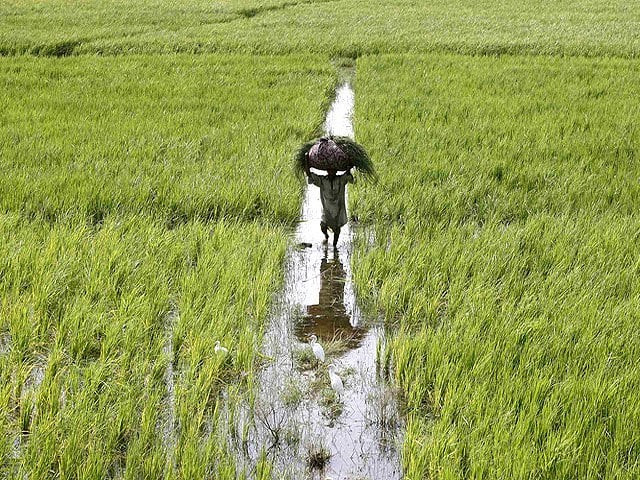Despite economic growth, agriculture is still a disappointment
Study calls for private sector financing, one-stop malls for farmers

PHOTO: REUTERS
The report, launched by the Shahid Javed Burki Institute of Public Policy, pointed to decades-old farming practices coupled with other core issues and said agriculture growth had clearly slowed down in the past one decade when output growth averaged only 2% per annum between 2006-16 and was -0.2% in 2015-16.
Rs635billion to be set aside for development
Excluding the negative growth, the overall growth of value addition in major crops over 2006-16 was only 1.5% per annum. The value addition in other crops, including fruits, vegetables and oilseeds, dropped from 14.5% in 2005-06 to 11.3% in 2015-16.
The key areas of concern were pricing and procurement policies, water pricing, seed policy, research and extension services, marketing and financial services.
The report suggested some solutions in order to move beyond traditional ways and fix the core issues with modern technologies to streamline the processes and behaviour of public and private-sector stakeholders.
The traditional solution to the financing constraints faced by farmers has been to develop public-sector credit facilities such as agriculture development banks. Such facilities have encountered several problems, which have limited their usefulness.
According to the report, efforts of non-governmental organisations (NGOs) and recent advances in information and communication technology (ICT) allow more private sector-oriented solutions to the financing constraints of agriculture economy, including small farmers, traders and input suppliers.
For example, microcredit schemes have been successful in providing access to small amounts of credit for the rural poor. Though such schemes have been started by the NGOs, these now involve private banks as well.
Mobile phones are among the most widely used technological devices and have enormous potential in the rural areas for promoting branchless banking.
Value chain financing eg trade credit, financing for input suppliers, contract farming, inventory credit, etc is yet another important tool to help commercialise agriculture.
The report suggested that despite traditional approach to rural infrastructure including roads, electricity and irrigation networks, Pakistan needed to go beyond to re-galvanise agriculture in the country.
Farm service centres or agri-malls may be the solutions in this regard. Agri-malls are one-stop shops that provide small farmers with agriculture and veterinary inputs, services, finances and technologies. These malls are successfully run in many countries, including Afghanistan and India, in one fashion or the other.
Agriculture Produce: Poor techniques affecting crops
According to the report, reliable and up-to-date information on markets enable farmers to make better production decisions and governments to frame coordinated policy responses in situations of market volatility. This could help make use of the rich information base on prices and costs that is already available with some government agencies.
Published in The Express Tribune, June 10th, 2017.
Like Business on Facebook, follow @TribuneBiz on Twitter to stay informed and join in the conversation.



















COMMENTS
Comments are moderated and generally will be posted if they are on-topic and not abusive.
For more information, please see our Comments FAQ